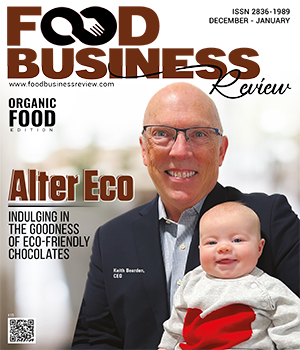The push toward ethical sourcing and environmentally friendly practices has become the cornerstone of modern business strategies. While there is a resounding call for sustainability across all industries, it echoes louder in the chocolate industry. This is primarily because producing cacao and transforming it into consumer-grade chocolate is a labor-intensive and time-consuming process that begins with the cultivation of cacao trees. These trees can take up to five years to produce the cocoa needed for just half a pound of chocolate, and as they age, their yield decreases, posing a challenge for cacao plantations worldwide.
Cocoa crop production is also intricately linked to climate change, often as a result of deforestation and land clearing to make way for plantations. The chocolate production process itself can exacerbate environmental impacts, contributing to net negative carbon footprints. As a result, there is a pressing need to adopt more sustainable practices throughout the supply chain, from cocoa cultivation to the final product on store shelves.
Through Empowering Farmers To Embrace Regenerative Agriculture And Agroforestry, We Can Improve The Environmental Impact Of Farming And Enhance The Livelihoods Of Farming Communities
At Alter Eco, the trademarked phrase ‘cleanest and greenest snacks’ isn’t just a marketing slogan—it is its guiding principle. Following this commitment to the well-being of consumers, producers, farmers, and the environment, the company makes decisions that prioritize sustainability and quality in its wide range of chocolates, equally appeasing consumers’ taste buds and environmental conscience.
“We go beyond organic and ensure that we are carbon and climate-neutral as well. Our commitment extends further to supporting farmers with regenerative farming practices and agroforestry, which help enrich the ecosystem,” says Keith Bearden, CEO of Alter Eco.
 Product Range Reflecting Sustainability
Product Range Reflecting Sustainability
From soil to shelf, Alter Eco’s products are crafted from high-quality regenerative ingredients sourced from thriving ecosystems by small-scale, fair-trade farmers. Specializing in dark chocolate products with a cacao content of more than 70 percent, Alter Eco’s flagship product line is their Blackout collection which contains bars with over 85 percent cacao. Alter Eco’s full line of products includes chocolate bars, chocolate truffles, and Truffle Thins—indulgent bars with a layer of ganache truffle filling.
Alter Eco’s commitment to sourcing regenerative ingredients extends across its entire product range, beyond chocolate to include granola and quinoa. The company prioritizes the use of regenerative oats and almonds in its granola products, showcasing a dedicated effort to support the regenerative agricultural movement. While Alter Eco’s quinoa is already organic and fair trade certified, the company is also exploring opportunities to incorporate regenerative-certified quinoa into its product portfolio. By partnering with farmers in Latin America who are on the verge of obtaining regenerative certification for their quinoa crops, Alter Eco aims to expand its range of eco-conscious product offerings.
The company has also paid devoted attention to sustainable packaging. All the exterior packaging, including the truffle wrappers, is either recyclable, compostable, or backyard-compostable, while the granola is sold in resealable bags made from recycled materials. “By encouraging consumers also to take advantage of compostable packaging, we saved over 20 million truffle wrappers from ending up in landfills in 2023,” says Bearden.
 Business Model that Pushes Awareness
Business Model that Pushes Awareness
Alter Eco’s brand identity is closely tied to supporting a climate-neutral world. Its mission is to balance purpose with profit and ensure the use of business as a force for good. To demonstrate this commitment, Alter Eco holds a B-Corp certification, and has held that distinction since 2009. This distinguishes it from other industry players. Its commitment to reducing the carbon footprint goes beyond the conventional boundaries of organic certification to regenerative agriculture and agroforestry for extracting the benefits of a holistic ecosystem.
Alter Eco also collaborates with suppliers, manufacturing partners, and co-ops to create awareness and provide education and financial support to farmers, to foster sustainable ecosystems that can withstand the challenges posed by climate change. For instance, in regions like the Latin American jungles, where Alter Eco sources its cacao, a rich tapestry of crops coexists harmoniously. Here, farmers intertwine plantain trees with cacao plants alongside other crops like passion fruit or vanilla bean vines. This farming method fosters a symbiotic relationship, unlike the destructive practice of clear-cutting, which disrupts the delicate carbon balance of the planet.
-
We Go Beyond Organic And Ensure That We Are Carbon And climate-neutral As Well. Our Commitment Extends Further To Supporting Farmers With Regenerative Farming Practices And Agroforestry, Which Help Enrich The Ecosystem. We’re Improving The Planet One Chocolate Bar At A Time
“Through empowering farmers to embrace regenerative agriculture and agroforestry, we can improve the environmental impact of farming and enhance the livelihoods of farming communities,” says Bearden.
 Educating consumers about the importance of sustainable food choices is equally important, as most chocolate lovers are largely unaware of the environmental impact of their favorite indulgence. While certifications for organic, non-GMO, and fair-trade products have gained traction, certifications for regenerative farming are less well-known. Through various channels, such as social media campaigns, annual sustainability reports, and in-store promotions, the company educates consumers about the advantages of supporting brands committed to sustainability. This includes highlighting the value of compostable and recyclable packaging over non-compostable alternatives and promoting the significance of regenerative farming practices.
Educating consumers about the importance of sustainable food choices is equally important, as most chocolate lovers are largely unaware of the environmental impact of their favorite indulgence. While certifications for organic, non-GMO, and fair-trade products have gained traction, certifications for regenerative farming are less well-known. Through various channels, such as social media campaigns, annual sustainability reports, and in-store promotions, the company educates consumers about the advantages of supporting brands committed to sustainability. This includes highlighting the value of compostable and recyclable packaging over non-compostable alternatives and promoting the significance of regenerative farming practices.
Pathways to Progress
Alter Eco primarily operates in the B2B sector, catering to retailers. The products are stocked in natural channel stores across the United States and Canada, including popular retailers like Whole Foods, Sprouts, and Natural Grocers. In addition, it extends D2C sales through the website and Amazon. Looking ahead over the next 18 to 24 months, Alter Eco’s growth strategy is rooted in its unwavering commitment to sustainability and ethical sourcing practices. One significant aspect of its future plans involves ongoing product innovation, which involves developing new flavors like the upcoming release of almond butter-flavored granola.
Alter Eco is also strategically positioning itself for a broader market reach. Traditionally recognized as a leader in the natural channel, the company is now seeking to penetrate conventional retail spaces, such as Walmart, Target, and Kroger. Expansion into newer channels enables it to make sustainable, high-quality products more accessible. For Alter Eco fostering sustainable practices is not just as a responsibility; it is a competitive advantage. Through its products and business model, the company provides guilt-free chocolate indulgence and promotes sustainability through clean ingredient sourcing and eco-friendly packaging.
Thank you for Subscribing to Food Business Review Weekly Brief




